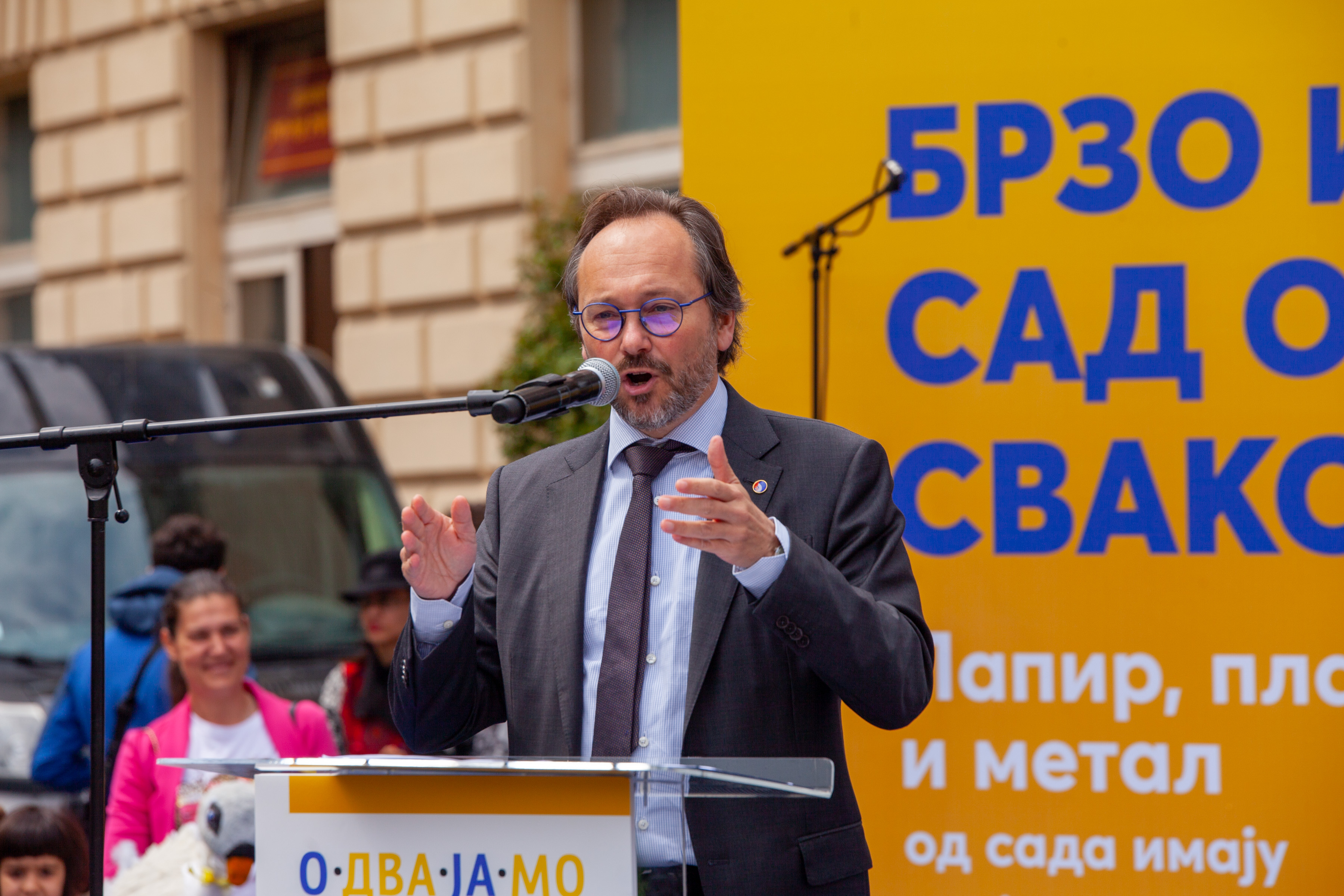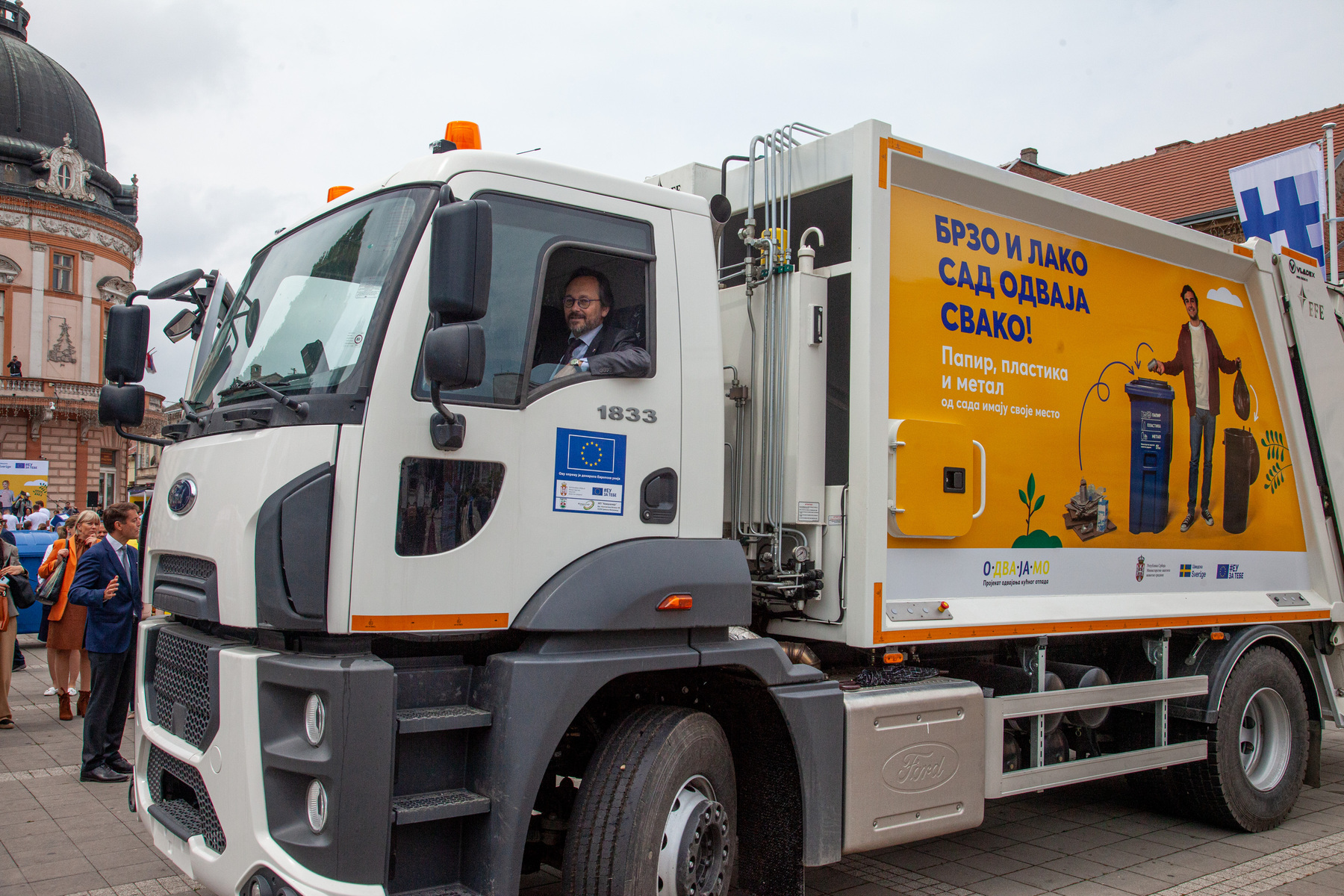SERBIA can absolutely
approach the standards of the European Union when it comes to the separation of
municipal and household waste! This is what the head of the EU delegation in
our country, Emanuele Giaufret, says for "Novosti"
- Serbian standards, as well as EU standards, require waste separation. The EU's first goal is to recycle 50% of municipal waste. With the recycling of household waste at barely 2% and municipal waste (including commercial waste) at 15%, there is much room for improvement, but it is now starting correctly in Serbia, says Ambassador Giaufret.

o In your opinion, what is the key to raising awareness among Serbian citizens about the importance of recycling?
- We believe that there is already a high level of awareness of the citizens of Serbia about the importance of recycling. Part of the household waste separation project included a comprehensive survey in 17 cities and municipalities and showed that 94% of the population is aware.
We believe that it is crucial to enable citizens to take action. The transition from ‘awareness’ to ‘action’ is often a big step for all of us. That is why this project supports local authorities to work with citizens to take control of household recycling.
o How many projects of a similar nature have been supported by the EU in Serbia and what do you expect from the Household Separation Project in 4 regions of Serbia, which you opened in early June in Sremska Mitrovica?
- This project is the first initiative for recycling of this scale in Serbia, financed by the EU or anyone. It may be the first of its kind among EU candidate countries in the region. The EU and EU member states have worked with a number of local Serbian authorities on smaller pilot projects in the past, but expect larger-scale actions in the future.
o Do you believe in the success of this project and can it be implemented throughout Serbia?
- Yes. We are aware that big changes are not easy, but all EU member states and many other countries around the world have done it, and we believe that Serbia will do the same.
o If the project succeeds and when the behavior of citizens changes, is support planned for the monetization of collected waste that can be recycled? Will it be left to the market or can cooperation be built in this field with the EU as well?
- This depends on further strategic choices made by the government. If the 4 regions involved in this project raise household recycling to 15%, it would mean that an additional 30,000 tons of material per year will go to the Serbian recycling market. The market should create new opportunities, new jobs in Serbia for processing that material. The EU is engaged and ready to continue supporting Serbia in the waste management sector
o How satisfied are you with the fulfillment of Serbia's obligations as a candidate for full membership in the EU when it comes to environmental protection?
- I think itis more what the process of European integration brings to Serbia, what direct benefit the citizens of Serbia have from it and how Serbia actively and sincerely participates in it. And of course how Serbia will continue to benefit from full EU membership at the time of accession. As for the protection of the environment, but also of all other sectors, the EU publishes an "annual report" every year, which looks at the level of harmonization of legislation, quantifies the progress made and proposes recommendations.

Last year's report on the environment and climate (Chapter 27) states that "Serbia has achieved a certain level of preparedness in the field of environment and climate change." Last year's recommendations remain largely in force. Serbia should significantly strengthen its ambitions towards a green transition and focus on drafting an ambitious national energy and climate plan in a transparent manner and start implementing the plan. In addition, Serbia needs to intensify implementation and enforcement work, such as ensuring strict compliance with environmental impact assessment rules, closing landfills inconsistent with the law, increasing investment in waste reduction, separation and recycling, improving air and water quality, including gradual dumping of coal, intensification of cross-border cooperation. Finally, Serbia needs to improve the administrative and financial capacity of central and local government, especially the Environmental Protection Agency and environmental inspections.